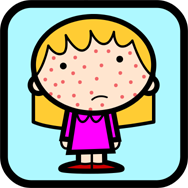






EYFS 2021 > Safeguarding and welfare requirements > 3.2
EYFS 2021 > Staff qualifications, training, support and skills > 3.25
EYFS 2021 > Health > Medicines > 3.46; 3.47
EYFS 2021 > Accident or injury > 3.51; 3.52
It is our policy to keep children safe when they are in our care, promote good health and take necessary steps to prevent the spread of infection within our setting.
If a child appears unwell during the day, for example has a raised temperature, sickness, diarrhoea and/or pains, particularly in the head or stomach then the nursery manager will call the parents and decide if the child needs collecting or send a known carer to collect on their behalf.
If a child has a raised temperature, they will be kept cool by removing top clothing, sponging their heads with cool water and kept away from draughts.
Where a child has a temperature above their normal body temperature, we will check regularly using a Fever Scans or other means i.e. ear thermometer.
If a baby’s temperature does not go down, and is worryingly high, then Calpol may be given after gaining verbal consent from the parent where possible. This is to reduce the risk of febrile convulsions, particularly for babies under 2 years old. Parents will be sent a medication record by email.
In an emergency an ambulance will be called and the parents are informed.
Parents are requested to seek medical advice before returning their child to the nursery following a period of illness.
The nursery can refuse admittance to child who has a raised temperature, sickness and diarrhoea or a contagious infection or disease.
Where a child has been prescribed antibiotics for an infectious illness or complaint, parents are asked to keep them at home for 48 hours.
After diarrhoea or vomiting, parents are asked to keep children home for 48 hours following the last episode.
Some activities such as sand and water play and self-serve snack will be suspended for the duration of any outbreak.
The nursery follows the guidance on preventing and controlling infections in nurseries.
The nursery has a list of notifiable diseases and contacts UKHSA and Ofsted in the event of an outbreak.
If a member of the teaching staff suspect that a child who falls ill whilst in their care is suffering from a serious disease that may have been contracted abroad such as Ebola, immediate medical assessment is required. The nursery will call NHS111 and informs parents.
Viruses such as Hepatitis, (A, B and C), are spread through body fluids. Hygiene precautions for dealing with body fluids are the same for all children and adults.
Single use vinyl gloves and aprons are worn when changing children’s nappies, pants and clothing that are soiled with blood, urine, faeces or vomit.
Protective rubber gloves are used for cleaning/sluicing clothing after changing.
Soiled clothing is rinsed and bagged for parents to collect.
Spills of blood, urine, faeces or vomit are cleared using mild disinfectant solution and mops; cloths used are disposed of with clinical waste.
Tables and other furniture or toys affected by blood, urine, faeces or vomit are cleaned using a disinfectant.
Baby mouthing toys are kept clean and plastic toys cleaned in sterilising solution regularly.
Nits and head lice are not an excludable condition; although in exceptional cases parents may be asked to keep the child away from the nursery until the infestation has cleared.
On identifying cases of head lice, all parents are informed and asked to treat their child and all the family, using current recommended treatments methods if they are found.
The use of paracetamol-based medicine (like Calpol) may not be agreed in all cases. The nursery will only use its own non-prescription medicine. Parents (especially of a child under two years), by virtue of this policy, agree to the nursery administering paracetamol-based medicine in the case of high temperature.
Such medicines as Calpol will never be used to reduce temperature so that a child can stay in the care of the nursery for a normal day.
Review date: 31 December 2025


